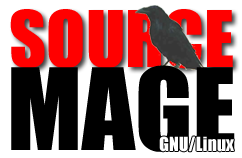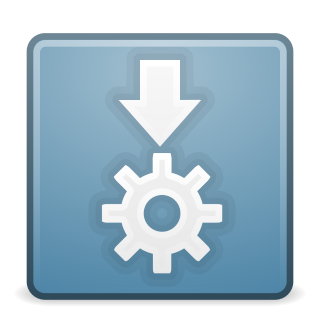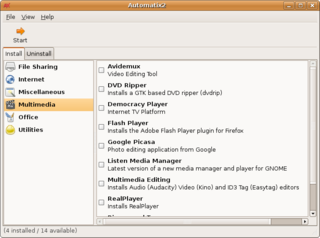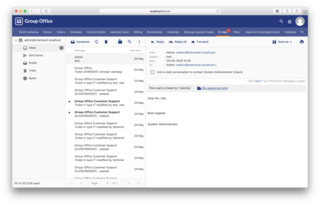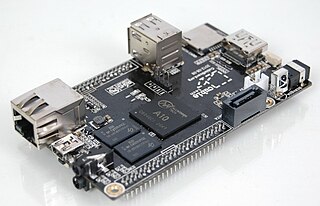It is proposed that this article be deleted because of the following concern:
If you can address this concern by improving, copyediting, sourcing, renaming, or merging the page, please edit this page and do so. You may remove this message if you improve the article or otherwise object to deletion for any reason. Although not required, you are encouraged to explain why you object to the deletion, either in your edit summary or on the talk page. If this template is removed, do not replace it . The article may be deleted if this message remains in place for seven days, i.e., after 15:18, 12 September 2021 (UTC). Nominator: Please consider notifying the author/project: {{ subst:proposed deletion notify |Lunar Linux|concern=could not find reliable sources}} ~~~~ |
| | |
 | |
| Developer | The Lunar Linux Team |
|---|---|
| OS family | Unix-like |
| Working state | Current |
| Source model | Open source |
| Initial release | March 2002 |
| Latest release | 1.7.0 Rolling release October 2014 |
| Repository | |
| Available in | English |
| Update method | lin (source code) |
| Package manager | Lunar |
| Platforms | IA-32, x86-64 |
| Kernel type | Monolithic (Linux) |
| License | Mostly GPL, and other free software licenses |
| Official website | www |
Lunar Linux is an operating system maintained around a source-based package management system also called Lunar. The project is a descendant of the Sorcerer Linux distribution. [1] [2]
The installation disk installs a complete bootstrap development system first. After the user tells the Lunar package manager which packages will be required, it automatically builds the software by downloading current source code and locally compiling an optimized package. [3] In this way Lunar can be seen as a Linux From Scratch framework. Also noteworthy is that all of Lunar's tools, including the package manager, are entirely written in Bash shell script.
Currently,[ when? ] Lunar supports the i686 and x86-64 architecture, but has been implemented by users on SPARC. [4] No install support is planned for non-x86 architectures at the moment.[ when? ]
Lunar began as a fork of Sorcerer because of concern over the uncertain future of the distribution. Kyle Sallee, the sole maintainer and lead developer of Sorcerer, decided to re-license all the Sorcerer code into his own custom, non-forking license called the Sorcerer Public License, as a way to stop people from "stealing" his work after Lunar forked. [5] This move caused the rest of the Sorcerer development team to splinter off and form what is essentially a direct continuation of the last version of Sorcerer licensed under the GNU General Public License, called Source Mage. Comparatively, Lunar focuses more on ease of use, while Source Mage focuses on advanced system administration.
The project was originally led by Chuck Mead, an Xfce developer, operating both projects under the Foo-Projects banner. [6] The project lead was eventually handed off to Auke Kok, a long time contributor and developer.
The name Lunar comes from Chuck Mead's now defunct consulting firm, MoonGroup. [7] Lunar's naming scheme was originally used for a shortly abandoned fork of Red Hat Enterprise Linux that Mead created while working at Red Hat.
The German ISP, IP Minds, is notable for having used Lunar Linux within their infrastructure. [8]
Since version 1.6.4 (Lacus Autumni) Lunar releases have been named after lunar maria.


